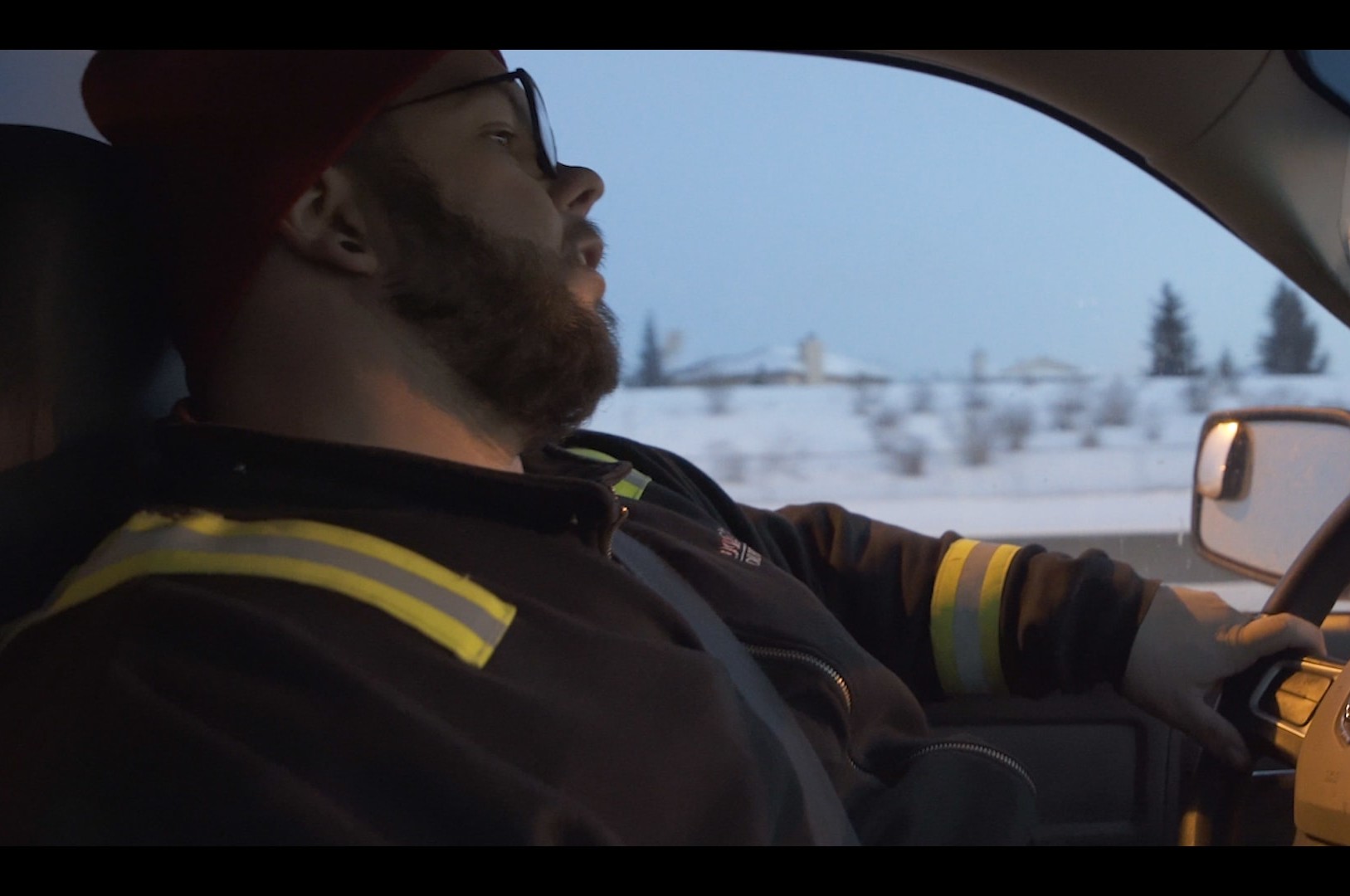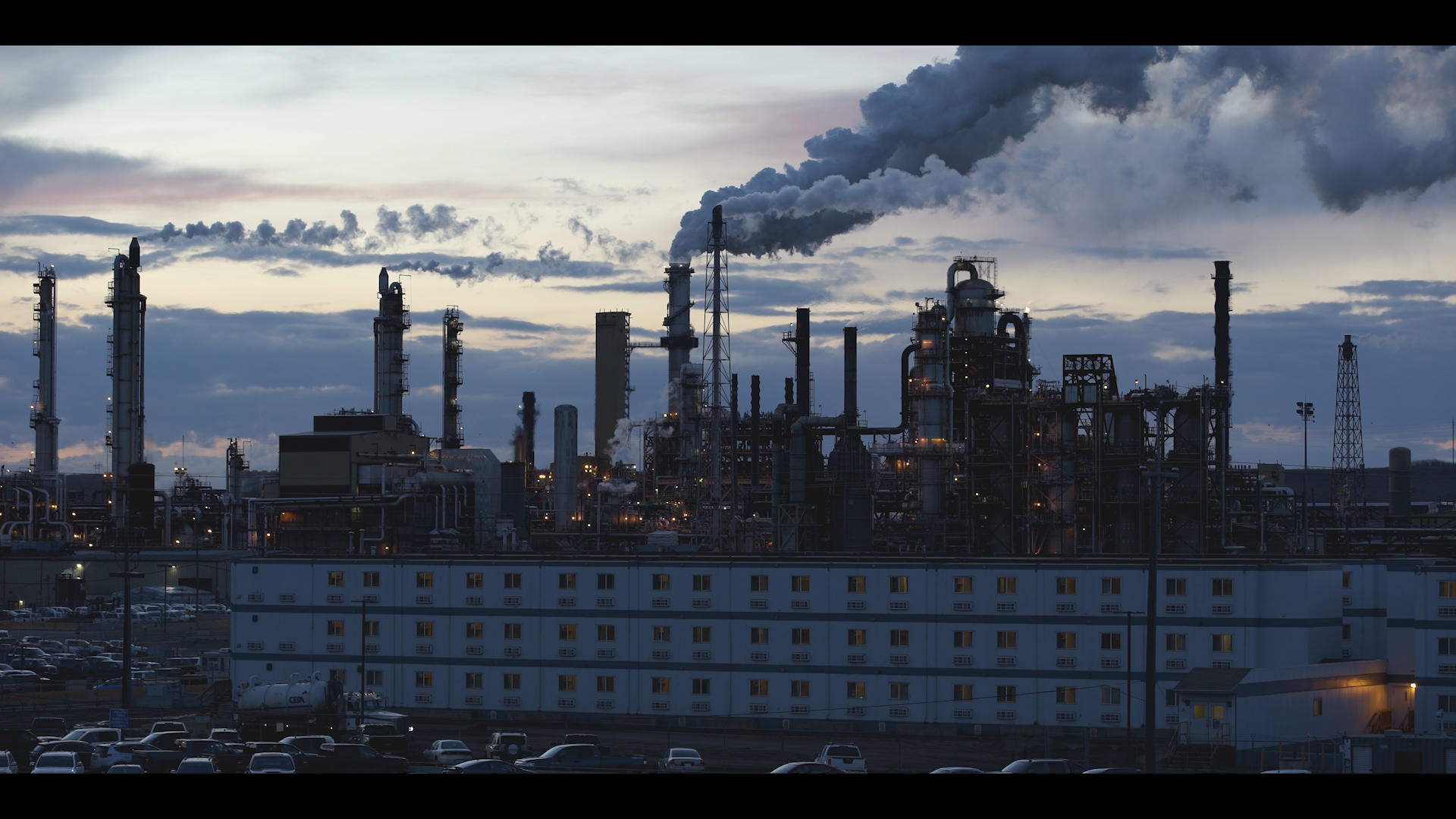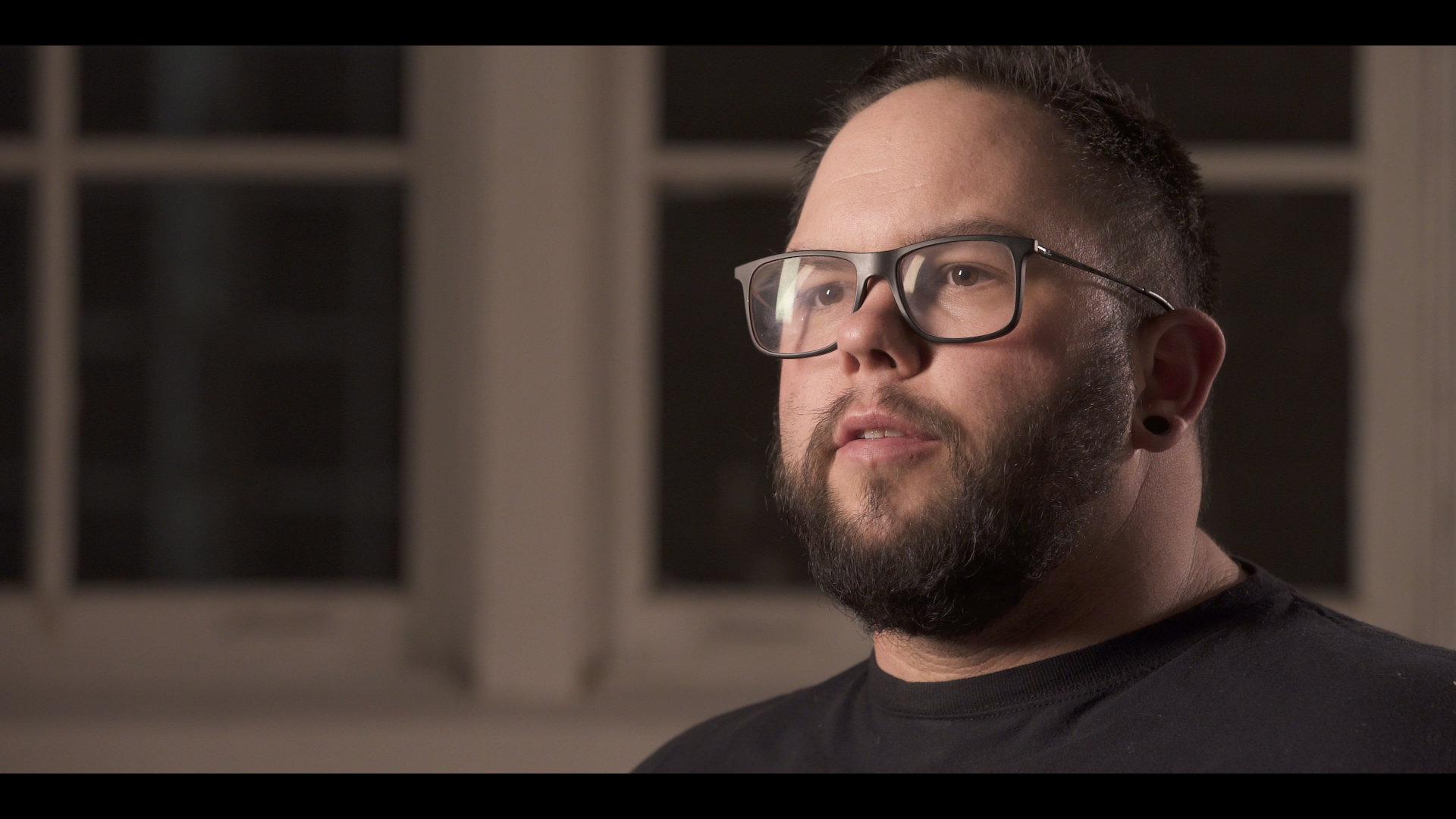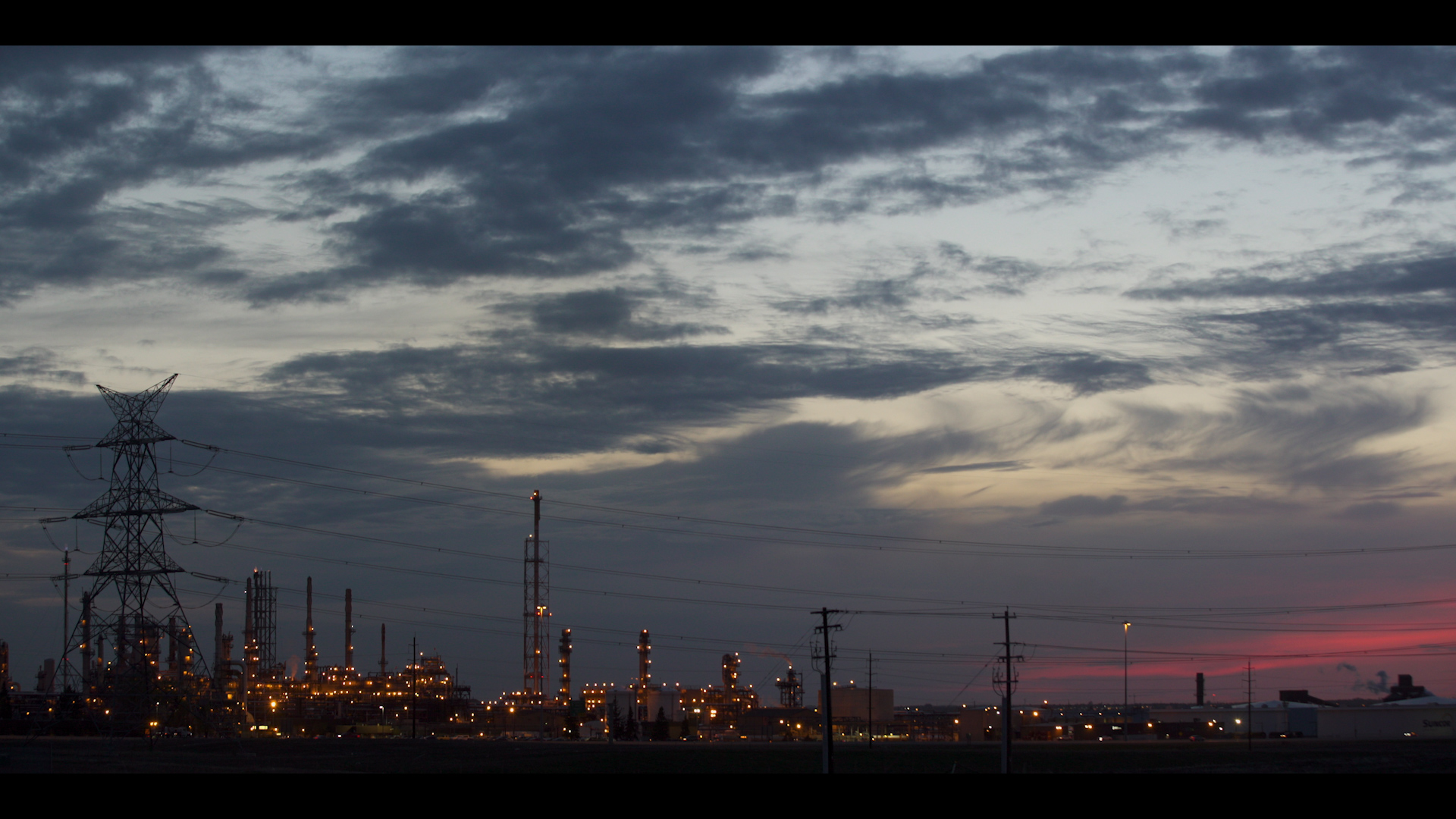
What’s scarier for Canadian communities — floods, or flood maps?
When maps showing areas most likely to flood are outdated, it puts people and property...
Back in 2015, Alberta saw a spike in suicide rates. To many, the reason seemed obvious.
Recent layoffs in the oilpatch had left many workers — for whom raking in six-figures had not been uncommon — suddenly out of work, and out of opportunities. Many had been in the industry since they were teenagers.
But the mental health challenges faced by workers in the oil and gas industry are not only felt during recessions.
The ongoing mental health crisis in the oilpatch is the topic of a new documentary by Edmonton directors Dylan Rhys Howard and Omar Mouallem.
The film explores how oilpatch workers — predominantly men — can find themselves in a ‘boys don’t cry’ environment where workers can be expected to pull themselves up by their bootstraps, rather than talk about the stressors in their lives.
The result, the filmmakers assert, is an often unseen human toll of Alberta’s oilpatch: a rampant mental health crisis.
Suicide rates are still high in Alberta — the rate of suicide in the province is 30 per cent higher than the national average, at 14.7 suicide deaths per 100,000 people in 2017, according to Statistics Canada.
They’re also particularly high among men. Statistics Canada pegged the 2017 male suicide rate in Alberta at 23 per 100,000, 35 per cent higher than the national male average.
A study published in the B.C. Medical Journal dubbed male suicide a “silent epidemic,” where men are directly or indirectly told to ‘man up’ and mental health issues in the trades are often ignored.
Among the contributing factors cited by the study are overwork and employment insecurity — both major factors in a boom-and-bust oil industry.
The Narwhal sat down with Chris Johnson, one of the men featured in Digging in the Dirt. He’s a crane operator who has worked in the oil and gas industry in Alberta since he was a teenager.
Johnson had big plans — to move to Vancouver and focus on his band, and to one day attend law school.
He ended up in an industry where he too often found himself facing pressure to toughen up.
It took a breakdown at work for him to recognize the personal mental health crisis he was facing, and now he’s opening up about the oft-stifled crisis in the industry as a whole.
Digging in the Dirt premiers September 14 on CBC, and is available online.
I was optimistic. I was a 19-year-old kid. At the time, large projects were getting announced. There was a lot of work on the horizon and it seemed like there was a lot of money to be made.
The amount of money I started making was atrociously more than I would make before 20 years as a lawyer. So that plan kind of got backburned.

Chris Johnson pictured in a scene from Digging in the Dirt. Photo: Dylan Rhys Howard and Omar Mouallem
My real realization for me was when I was working local, building a plant at Shell Scotford. I had had a relationship fall apart and had gone into work because, you know, that’s what you do, as you’re expected to do in the trades —you go to work, and whatever you’ve got going on outside kind of takes a backburner to your job.
I went in and the contractor called my supervisor because I was sitting in the crane, kind of hiding in the back of the yard, and I was crying.
They were like, ‘we can’t have this guy crying in the crane. We just can’t have that. These guys don’t feel safe working with him.’
So my supervisor came and got me and that’s when I got my diagnosis of bi-polar disorder and had my first exposure to psychiatrists and drugs to control my bi-polar.
No. Heck no.
You don’t share your feelings with people at work, especially as that was probably 12 or 13 years ago. It just was not something that you did.
Every time I tell the story, I think back to the first time I was able to go get help and the first time I realized that there were resources out there.
That’s my big thing — I encourage people to have a conversation about what they’re feeling because the weight that comes off your shoulders is unbelievable.
People don’t always acknowledge the mental hardships of being in camp, fighting for one wi-fi signal with up to 3,000 other people — and that really being your only window to the outside world.
It’s a very lonesome way of living. Like I say, there’s only so much wi-fi to go around. Some of the camps are 3,000 or 5,000 people and they’ve only got so many repeaters that you can go off of, so you’re fighting with 3,000 other guys who are all trying to get a hold of their families.

Worker accommodations, known as ‘man camps,’ shown here in a scene from Digging in the Dirt. Photo: Dylan Rhys Howard and Omar Mouallem
It’s tough to keep up to date with what’s going on at home. And if there’s a problem at home you’re not able to go deal with it.
Especially on the fly-in-fly-out jobs, you’re scheduled to be there until a certain day — and they do not got out of their way to figure out whatever’s going on with your life and get you home.
It’s aggravating. It destroys a person’s mental health.
If something happens — be it a family member gets sick or if something happens with your spouse, or if something happens to your house, say your basement floods or something, you have no way to deal with that.
You’re stuck sitting in a 12-by-10 room to stew on it until you find a way to get home.
Very, very much. It’s very, very prevalent. Even to this day, it’s very prevalent.
Family members of mine recently have gone through mental health struggles and have had people make comments and were forced out of a job with a major company because of their mental health.
It’s still very much ‘boys don’t cry’ and ‘leave your struggles at home’, ‘we don’t want to hear about it.’
Oil comes first.

Chris Johnson pictured in a scene from Digging in the Dirt. Photo: Dylan Rhys Howard and Omar Mouallem
The corporate culture is ‘we’re here for you’ and ‘we won’t judge you and we won’t hold it against you if you open up about what’s going on,’ but the corporate culture pretty much stops at the HR office and doesn’t really trickle down a lot of the times into the field.
But as supervisors get younger and come into a generation where it’s more acceptable to talk about it, I’m definitely seeing it opening up. I’m definitely seeing a lot more openness to hear my story.
I have had employers ask me to speak about my story at the front of site-wide meetings, and that’s great.
They are doing great things. It’s becoming the corporate culture. The way things work in this industry is things become corporate culture, and then 10 to 20 years later they become the actual culture because then you see the turnover of the old guard into the new guard.
I started on a site today, and I was actually really encouraged, because right in the orientation room — the first room you go into when you come on site — there were pamphlets about mental health. It’s definitely becoming more prevalent.
But ultimately, supervision always has shareholders to answer to and the shareholders only care about one thing.
As much as the corporate and field culture is changing, at the end of the day the money is what powers it all.
I think it’ll be interesting in the next five to 10 years, how much more prevalent these conversations are — but it also all depends on the price of the commodity.

Oil and gas facilities and flares are a common sight throughout many parts of Alberta. Photo: Dylan Rhys Howard and Omar Mouallem
When oil is high, companies are more willing to invest in programs like this. When oil is low, the bottom line comes first and programs like this kind of go by the wayside.
There’s still that thought process that it moves you up the lay-off list if you talk about what’s going on. There’s still very much a stigma.
It shifts the conversation into the limelight. And being a person people can relate to really makes a difference.
People see me and they think ‘this is a real thing. These are real people.’
Honestly, somebody had to. That’s basically what it came down to.
I’ve found a way to start getting out of the industry and changing my life to have a lot more control over how I use my time.
And so I don’t have to rely on oil and gas for the rest of my life. I have plans to diversify myself.
Because of that I don’t have to worry about being ostracized. But truthfully I haven’t been ostracized. I’ve received more positive feedback since I started talking about my struggles than I ever thought I would.
That’s part of the stigma. People don’t want to talk because they think everyone is going to ostracize them. But it’s very positive once you do start talking.
My big thing is always just to encourage people to have a conversation with someone they trust.
Look into the resources that are there. Just have a conversation with someone. People aren’t going to judge. Just know the resources.
That was my big thing — I had no idea what the resources were that were available. You feel like you’re alone and you don’t know the resources. There are so many.
_____
At the end of our conversation, Johnson does a quick internet search to pull up the number for the Alberta mental health help line.
The toll-free, 24/7 Alberta mental health help line is 1-877-303-2462.
“It’s actually funny because this is the teamsters union website I’m finding this number on,” he says. “That’s super encouraging.”
Interview has been edited and condensed for clarity.
Enbridge Gas will face Waterloo Region in a hearing before the Ontario Energy Board to renew an agreement that would allow the company to continue...
Continue reading
When maps showing areas most likely to flood are outdated, it puts people and property...

We’re suing the RCMP for arresting a journalist on assignment for The Narwhal. It’s an...

As glaciers in Western Canada retreat at an alarming rate, guides on the frontlines are...